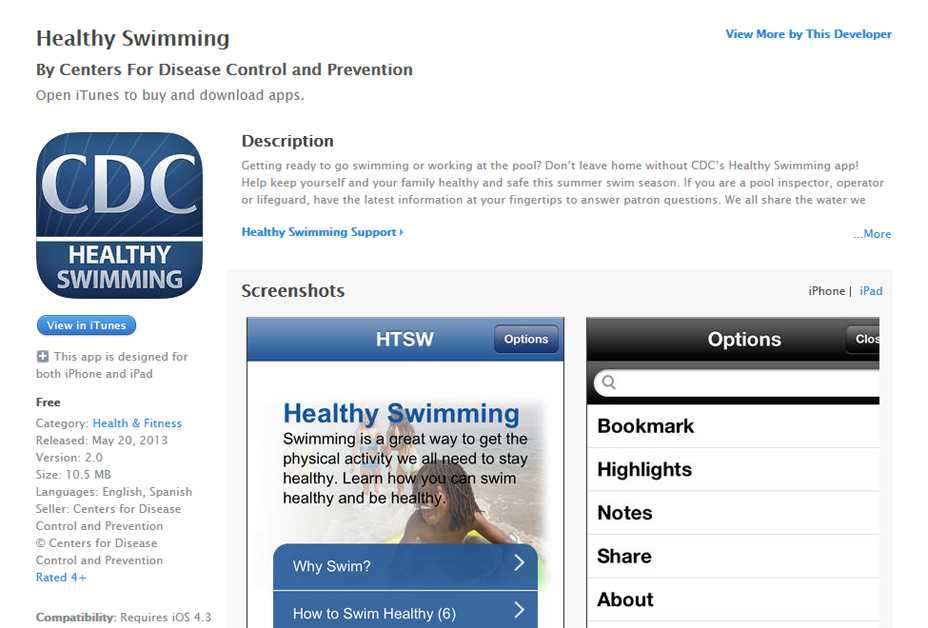Recreational Water Illness
[rek-ree-ey-shuh-nl] [wot-er] [il-nis]

Recreational water illnesses (RWIs) are caused by germs and chemicals found in the water we swim in. RWIs can be involve your stomach, intestines, skin, ears, respiratory system, eyes, or nervous system. The most commonly reported RWI is diarrhea. Swallowing just a mouthful of water that contains diarrhea-causing germs can make you sick. Other germs that cause RWIs can be spread by having contact with or breathing in mists of contaminated water.
Quiz
Key Facts
- The most common RWI is diarrhea. Swallowing water contaminated with poop that contains germs can cause diarrheal illness.
- Diarrheal illnesses can be caused by germs such as Cryptosporidium, Giardia, Shigella, norovirus, and E. coli.
- People have an average of 0.14 grams of poop on their bottoms. This poop can wash off swimmers’ bodies and can contaminate the water with germs.
- RWIs can also be caused by chemicals in the water or chemicals that enter the air from the water.
Media
Prevention Tips
We all share the water we swim in, and we each need to do our part to keep ourselves, our families, and our friends healthy. To help protect yourself and other swimmers from germs, here are a few simple and effective steps all swimmers can take each time we swim:
- Keep the pee, poop, sweat, and dirt out of the water!
- Stay out of the water if you have diarrhea.
- Shower before you get in the water.
- Don’t pee or poop in the water.
- Don’t swallow the water.
- Take kids on bathroom breaks every hour.
- During breaks, check diapers, and change them in a bathroom or diaper-changing area–not poolside–to keep germs away from the pool.
- Reapply sunscreen and drink plenty of fluids.
- Page last reviewed: June 6, 2017
- Page last updated: June 6, 2017
- Content source:


 ShareCompartir
ShareCompartir




